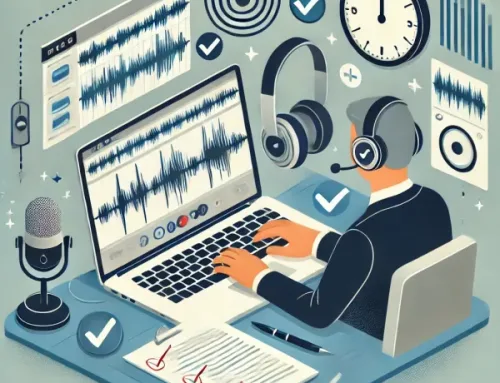When you are passionate about teaching, you don’t do it for the money or the necessity of a job. Instead, you do it out of a desire to impart your knowledge and enthusiasm for the subject matter you teach. As a teacher, you must guarantee that each pupil engages with the subject matter, comprehends it, and complies with your objectives (and their own).
According to research, typical classrooms, regardless of their size or the number of people within, have difficulties that instructors and students must deal with. There is frequently a need for additional help when your classroom comprises a variety of learners, whether they are overseas students, have learning disabilities, or require particular sorts of education.
With these difficulties in the classroom, technology can aid. It may enhance your teaching approach, guarantee that students get the most out of your lectures, and maintain audience interest when used appropriately. Making a transcription of your lectures is among the simplest ways to accomplish this. Online meeting transcription has been widely embraced over the past couple of years.
The following are reasons why you should transcribe your lectures;
1. Save time and make better use of any extra time
You don’t get paid enough for the hours you put into your work, let’s face it. How often did you have to rephrase your points during a lecture? Why not take a break so that others can read your notes?
How often have visitors to your office hours asked you to say the same thing? On all of these fronts, you can save time by providing a transcription (online meeting transcription may come in handy).
You won’t need to type up an outline on your own time after class to offer to pupils who weren’t there or who need further help. Your interactions with students will be more productive as a result.
2. A better comprehension of concepts
It can be beneficial to have a written record of the information when trying to learn something new. This is due to the fact that writing enables you to mentally cement the information. Handwritten notes force your brain to process information in a different way than listening to a lecture.
3. Saves Energy
It can be draining on your energy to take notes fast while listening to the debate, especially if you have other classes that day. You can effectively manage your energy reserves by transcribing your lesson notes.
During lectures, you can focus all of your efforts on listening, participating, and taking quizzes while still having plenty left over for homework and even socialising with friends. Consider having a transcription service transcribes your lecture notes while you attend to other tasks if you want to make the most of your energy.
4. Examine lecture transcripts for areas for development
Everybody wants to improve their work. You can accomplish this with the aid of transcription; after reviewing the transcription, look for areas where you can make improvements. You can identify spots where you fail, give too much or too little information, or repeat yourself when you watch your own words being spoken.
Students will gravitate toward good teachers since they don’t want to learn from terrible ones. This will support you in achieving tenure, increase student interest in your classes, and guarantee your job security.
5. Advance in the game
You can get a head start on things by transcribing your lectures, which is one of the best things you can do. When you have a written copy of the content, you can begin working on tasks and projects sooner. You can consult your notes to jumpstart your research if you’re having trouble understanding an idea.
6. Adjust your notes
You can discover that your notes contain errors or information that is missing when taking notes normally. Only if you have a mechanism to return to the professor’s discussion can these errors be fixed.
Transcriptions of lectures might provide you with that. You won’t need to ask your professor to repeat themselves when you can listen to an audio recording to see where your notes fell short and fill in the gaps.
7. Provide alternate Learning alternatives
We’ve been doing our best to teach to the middle and hope that all of our students will join us there for far too long. In actuality, they haven’t been acting in that manner. Every student learns differently, and we have been punishing those who don’t adapt to our needs when we need them.
8. Boost your Memory
Handwritten notes force your brain to process information in a different way than listening to a lecture. This helps to improve your memory by ensuring that you’re actively processing the information.
9. Important Resources for the Future
It gives you useful resources you can use in the future. You can make a useful resource to use as a reference when you need to study the topic by transcribing your lectures. According to a study, students who take notes on laptops are more likely to copy the professor’s words verbatim.
As a result, some students might retain the lecture material well but struggle to understand and apply it.
10. Increase accessibility of students
Every year, the proportion of hard-of-hearing students in post-secondary education increases. If you transcribe your lectures, it will be easier for these students to enter higher education. It can also benefit teachers who have trouble projecting their voices or those who work in larger classrooms.
Additionally, it can also be beneficial to people from other countries who might not be native English speakers. Students of other languages can utilise transcription to translate the lecture, take notes, and perhaps get a better knowledge of English.
Students and professionals alike can benefit greatly from lecture transcription. There is software that can assist you if you want to review lecture material, take better notes, or have a more professional transcript to submit for publishing.
You can utilise the services of our team of proficient transcribers to make the most of your lectures.






